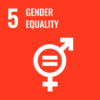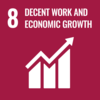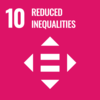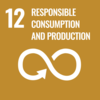As one the world’s largest garment exporters, the ready-made garment (RMG) industry is a pillar of economic success in Bangladesh. However, the Covid-19 pandemic has amplified the challenges faced by the sector, bringing to light unethical corporate practices such as cancellation of contracts, paying reduced prices and changing lead times and ineffective legal protections. Many workers already in precarious situations, went unpaid or lost jobs—unable to feed their families. Those retaining work, had greater workload for less money and women garment workers often faced abuse and gender violence.
Professor Azizul Islam Muhammad (Sustainability Accounting and Transparency) and his collaborators at the University of Aberdeen have since uncovered unfair practice within the supply chain and probed links to corporate responsibility. Using interview-based techniques and surveys, the team have been able to illuminate the lived experience of Bangladeshi female garment workers, particularly during the Covid-19 pandemic and the challenges they have faced. Together with academic, NGO and policy partners, the team are creating the groundwork for policy change and raising awareness to ensure that workers are empowered to demand that sufficient protections are in place to tackle abusive purchasing practices.
Annual carbon savings achieved with the initiative: Not yet known.



